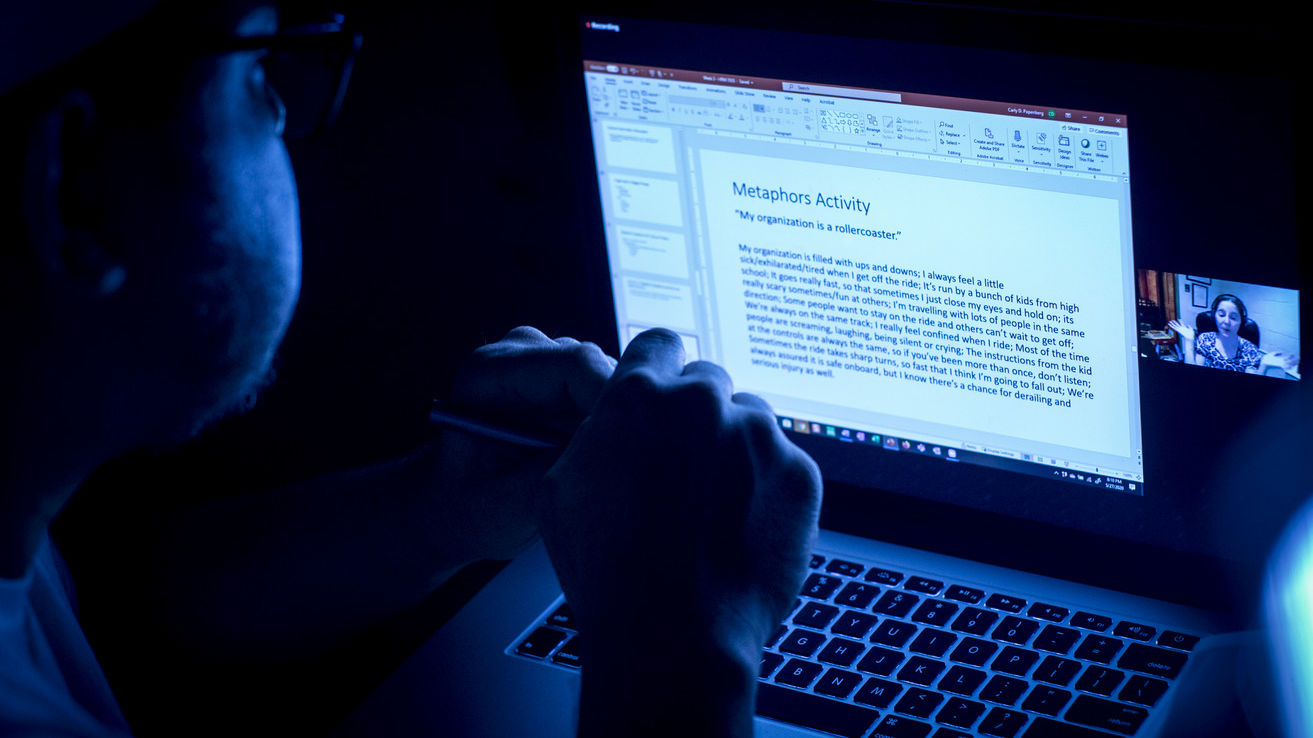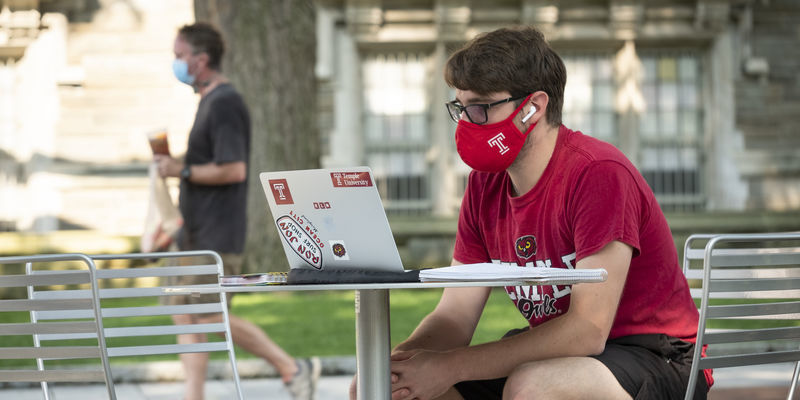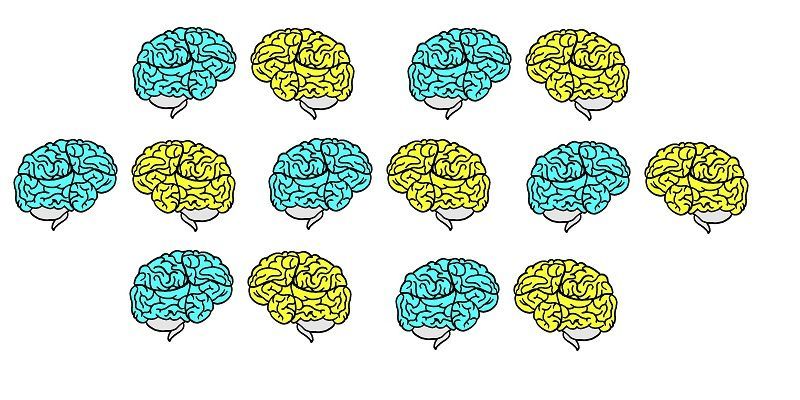Your guide to academic support: The Student Success Center
Discover tutoring services, study sessions, workshops and more—all designed to help you succeed at Temple. And, it’s all available online.

Let’s say you take a look at your grades, and they’re not what you want them to be, or maybe they are, but you feel like your study habits could be a bit more efficient? Maybe you realize you never seem to have as much time to finish a project as you would like, or that you could have really used an extra chance to review more problems before your calc test. But you’re not sure where to turn for help.
Look no further.
Temple’s Student Success Center (SSC) bills itself as a “one-stop shop” for academic assistance, and it serves both undergraduate AND graduate students. It’s physically located on the second floor of Charles Library, but this semester the SSC is providing all of its services virtually. They even have an online front desk, so you can “stop by” at your convenience to get all your general questions answered.
It’s open Monday through Thursday, 8:30 a.m.–8:30 p.m.; Friday, 8:30 a.m.–4:30 p.m. and Saturday, 10 a.m.–4 p.m.
Here’s a summary of what the SSC offers.
Where did I put those notes?
As you may have figured out by now, being successful in college requires more than just being “smart.” It demands a broad range of skills, including organization—so you can find your class notes when you need them, time-management—so you’re not cramming for a test at the last minute, and self advocacy. And no, meeting with a professor for extra help isn’t a bad thing. Asking for help is actually a really important skill that you’ll need in your future career, too.
With Academic Coaching, you can work on developing these skills and more.
Learn more and make an appointment.
Hello, Hola, Bonjour
Let’s say you want to practice your foriegn language skills, whether that’s English, Spanish, Arabic or Japanese. Conversation Partners is a way to just spend time talking with someone else in the language you want to focus on. Give it a try, and see how your language skills develop.
Learn more and make an appointment.
Review, rinse, repeat
If you think you might benefit from reviewing course content in a small group setting, Peer Assisted Study Sessions (PASS) might be perfect for you. These are weekly study meetings that provide extra help in courses that students commonly find particularly challenging, such as chemistry, physics or calculus. It gives you an opportunity to review the course content, complete worksheets, discuss key concepts or prepare for an upcoming exam with a student who has succeeded in the class before and is familiar with the material.
Two PASS sessions are offered per week in the following courses:
BIOL 1111: Intro to Organismal Biology
CHEM 1031: General Chemistry I
CHEM 1032: General Chemistry II
CHEM 2201: Organic Chemistry I
ECON 1101: Macroeconomic Principles
ECON 1102: Microeconomic Principles
KINS 1223: Anatomy and Phys I
KINS 1224: Anatomy and Phys II
MATH 1022: Precalculus
MATH 1041: Calculus I
PHYS 1021: Intro to General Physics I
PHYS 1022: Intro to General Physics II
PHYS 1061: Elementary Classical Phys I
PHYS 1062: Elementary Classical Phys II
PSY 1001: Introduction to Psychology
No appointment is necessary to attend a PASS session—all you have to do is show up.
Here’s the schedule.
Learn more about PASS
STEM help
For more help with courses that rely heavily on quantitative methods—including math, chemistry, physics, biology, engineering, kinesiology, computer science, psychology, economics, neuroscience and statistics—check out the STEM Learning Lab. The lab offers one-on-one tutoring as well as interactive review workshops and access to course resources, such practice tests and pre-recorded video lessons.
In the review workshops, students practice solving problems in collaboration with their peers. The workshops are facilitated by tutors who can help answer questions about course concepts. Students are encouraged to work through practice tests and problems sets before the review workshops, and to come prepared with questions.
Learn more and view the schedule.
How’s my thesis statement?
Whether you are working on scholarship essays, research papers or First-Year Writing assignments, the Writing Center is here to help with one-on-one tutoring.
In a typical session, your tutor will review your draft, ask questions about the assignment and work with you to develop a goal-oriented focus for your meeting.
You can make appointments for a same day session up to 45 minutes beforehand or as far ahead as eight days in advance.
In addition to Zoom sessions, you can schedule an e-tutoring session—in which you submit your draft and receive written feedback online—and read-ahead tutoring in which a tutor will review your paper in advance of your meeting. Read-ahead tutoring is recommended for papers over 15 pages in length.
Learn more and make an appointment.
Pro-tip: If you try to make an appointment, but the schedule is booked, try requesting a same-day mini-session of 20-25 minutes at the Front Desk Zoom Room or add your name to the waiting list and they’ll contact you if they get a last minute opening.
Did someone say “dissertation?”
Just because you’re a graduate student, doesn’t mean school is a slam dunk. The SSC offers a host of services, such as retreats and colloquia, designed with the needs of graduate students in mind. They address the particular kinds of writing and research projects that graduate students typically undertake.
Learn more and make an appointment.



